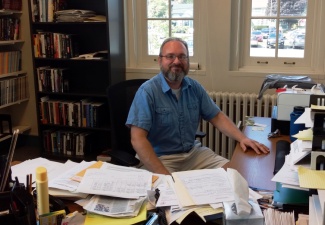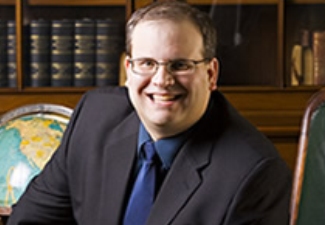Drug Czar Awards Grant for Drug-Free Efforts
PLATTSBURGH, N.Y. (March 1, 2010) -- The Plattsburgh Campus-Community Partnership
has received a five-year, $625,000 grant from the Office of National Drug Control
Policy.
This Drug Free Communities grant is one of 161 that will provide a total of $21 million
to communities nationwide. The funds will be used to involve and engage the local
community in an effort to prevent and reduce alcohol and other drug abuse among youth.
This funding is a continuation of an established program and coalition that has existed
in the City of Plattsburgh for the past five years.
"Efforts to keep our youth drug free are critical to healthy communities here in Plattsburgh,"
said Jessica Mathews, project coordinator for the program. "The Drug Free Communities
Program recognized the great successes and potential of the Plattsburgh Campus-Community
Partnership to help save the lives of youth. This continued funding will allow our
partnership to continue to mobilize and organize our community to prevent and reduce
substance abuse."
"The Drug Free Communities Support Program bolsters individuals and groups across
the nation that are improving their communities by preventing drug abuse," said Substance
Abuse Mental Health Services Administration Acting Administrator Eric Broderick. "SAMHSA
is honored to play a role in this innovative program, which has done so much to promote
well-being, hope and feelings of empowerment among so many young people."
Gil Kerlikowske, the director of the Office of National Drug Control Policy and President
Obama's "drug czar," said, "Evidence shows that communities receiving DFC funding
have lower instances of youth using tobacco, alcohol and marijuana. I commend the
coalitions like the Plattsburgh Campus-Community Partnership, which work tirelessly
to prevent and reduce youth drug use across the nation with the aid of DFC grants."
The Drug Free Communities program is directed by the White House Office of National
Drug Control Policy in partnership with the Substance Abuse and Mental Health Services
Administration. The DFC program provides grants of up to $625,000 over five years
to community coalitions that facilitate citizen participation in local drug-prevention
efforts. Coalitions are comprised of community leaders, parents, youth, teachers,
religious and fraternal organizations, health care and business professionals, law
enforcement, and the media.
The 161 new grantees were selected from 417 applicants through a competitive, peer-reviewed
process. To qualify for matching grants, all awardees must have at least a six-month
history of working together on substance-abuse-reduction initiatives, have representation
from 12 specific sectors of the community, develop a long-term plan to reduce substance
abuse, and participate in the national evaluation of the DFC program.
"The Plattsburgh Campus-Community Partnership has seen great success over the past
five years, thanks to its collaborative work with the Plattsburgh City School District,
SUNY Plattsburgh, Clinton Community College, Champlain Valley Family Center, Behavioral
Health Services North, Plattsburgh City Police, University Police, Clinton County
STOP DWI, the Clinton County District Attorney's Office, Hall Communications and many
other community partners," said Mathews.
According to Mathews, the partnership itself is comprised of multiple subcommittees,
including Restorative Justice; the Plattsburgh City-Campus Coalition; the Neighborhood
Association; Parent/Community Education and Youth Involvement; and both the SUNY Plattsburgh
and Clinton Community Alcohol and Other Drug Task Forces.
For more information on these or the work of the partnership, visit research.plattsburgh.edu/CampusCommunityPartnership/ or call Mathews at 518-564-3366.
News
Knelly Named Special Adviser to SUNY for Clinton Transition

Quebec Studies Presents Montreal Historian in Virtual Talk on 1913 School Strike

Campus Shines Light on Developmental Disabilities During Awareness Month and Beyond
Black Solidarity Day Officially Added to SUNY Plattsburgh’s Academic Calendar

SUNY Plattsburgh Political Science Professor to Zoom a Discussion on the Russian Invasion of Ukraine
